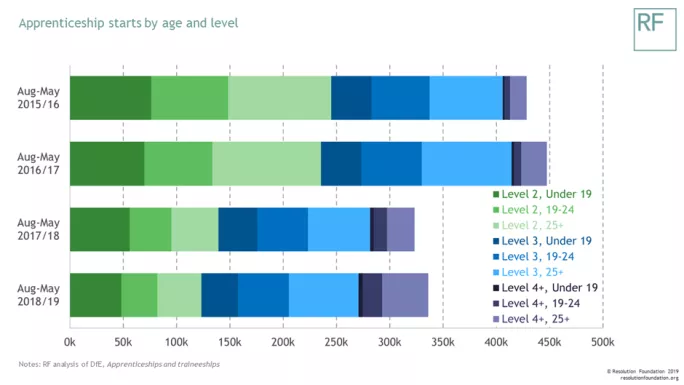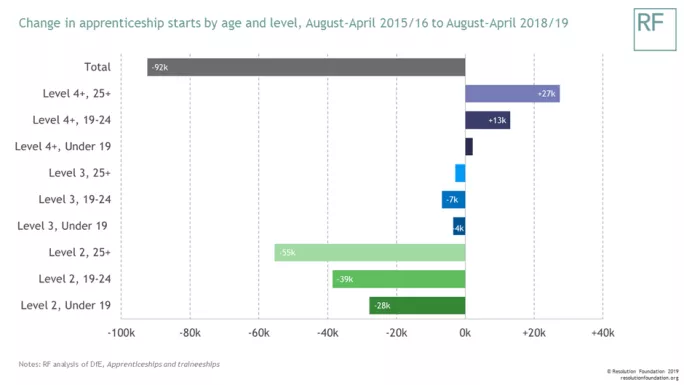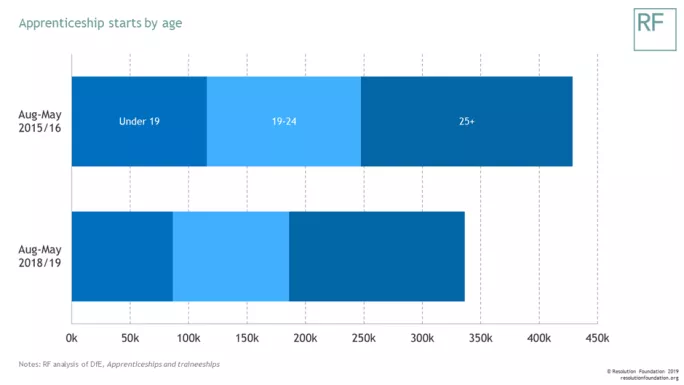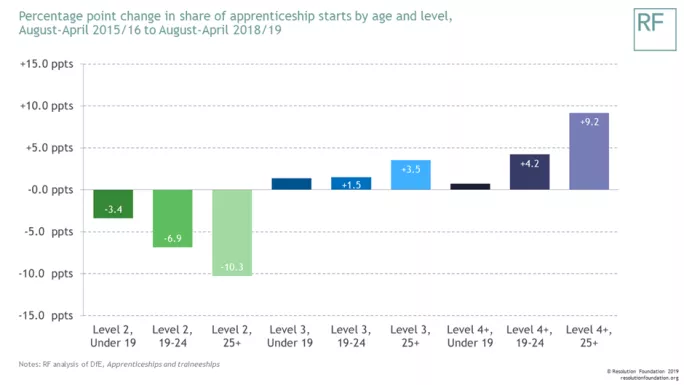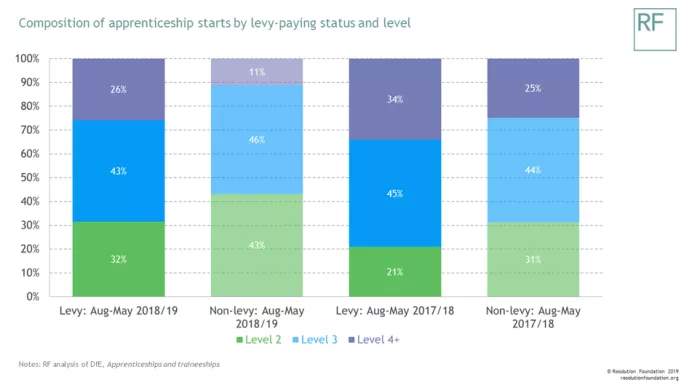It’s been a few months since we last reviewed apprenticeship starts and, although things may be changing over at the Department for Education, there aren’t any real shocks in the latest round of apprenticeship data. At least, not on the surface: the total number of starts remains down on the pre-apprenticeship levy system, and there’s been a continuous shift away from lower-level programmes and towards higher-level ones.
But despite the familiar story on numbers, the policy context has really begun to move: given warnings of a budget overspend, and pressures stemming from an anticipated spending review, many in the sector are debating how to cut apprenticeship costs.
Background: ‘Apprenticeships benefit the “already-haves”’
Inspiring apprentices: ‘I have found the career path I want to follow’
News: Apprentices launch campaign group to call for change
First, though, the numbers: there were 337,000 apprenticeships started between August and May of this academic year, slightly up on the same time last year but well below figures for the pre-levy years.
What do we want from apprenticeships?
As ever, the real story is in the details: the number of starts at higher levels, and particularly higher-level starts for those age 19 and over, has skyrocketed (albeit from a low base). Conversely, the number of starts at level 2 (and particularly level 2 starts for those age 25 and older) has fallen. Starts at level 3 have also fallen, but to a lesser extent.
All of this change hasn’t substantially shifted the age-related composition of the apprenticeship system, with those age 25 and older continuing to form a plurality of starts.
It’s just that now there’s a growing trend for older apprentices to start higher-level programmes rather than the lower-level programmes, which formed a plurality of starts in the past.
Firms that don’t pay into the apprenticeship levy are, perhaps unsurprisingly, more likely to invest in apprenticeships at lower levels than are levy-paying firms. However, the proportion of starts at lower-levels has fallen for both levy and non-levy-paying employers alike over the past year.
So in summary, the system remains focused more on older apprentices than it is on younger apprentices. It is increasingly focused on higher-levels of study than on lower. It’s smaller, but also more expensive. Different people will have different interpretations as to whether these changes are a good or a bad thing; in the end, it depends on what, and whom, they think apprenticeships should be for.
As the pressures stemming from both a projected overspend and an anticipated spending review take hold, stakeholders are currently debating options for keeping costs down, ranging from restricting apprenticeships to particular levels, to putting in age requirements and/or salary thresholds.
But before policymakers institute any of these reforms, we need to understand what exactly has driven these changes. Has it been the regulatory reforms that came in alongside the levy, such as a 12-month minimum programme length, a requirement for 20 per cent off-the-job training and end-point assessment? Or has it been driven by the levy-funding system itself? These are tough, but important, questions. We’ll give our best effort to answer them (and more) in a Resolution Foundation note due to be published next month.
Kathleen Henehan is research and policy analyst at the Resolution Foundation. The graphs are based on Resolution Foundation analysis of Department for Education and ONS data

